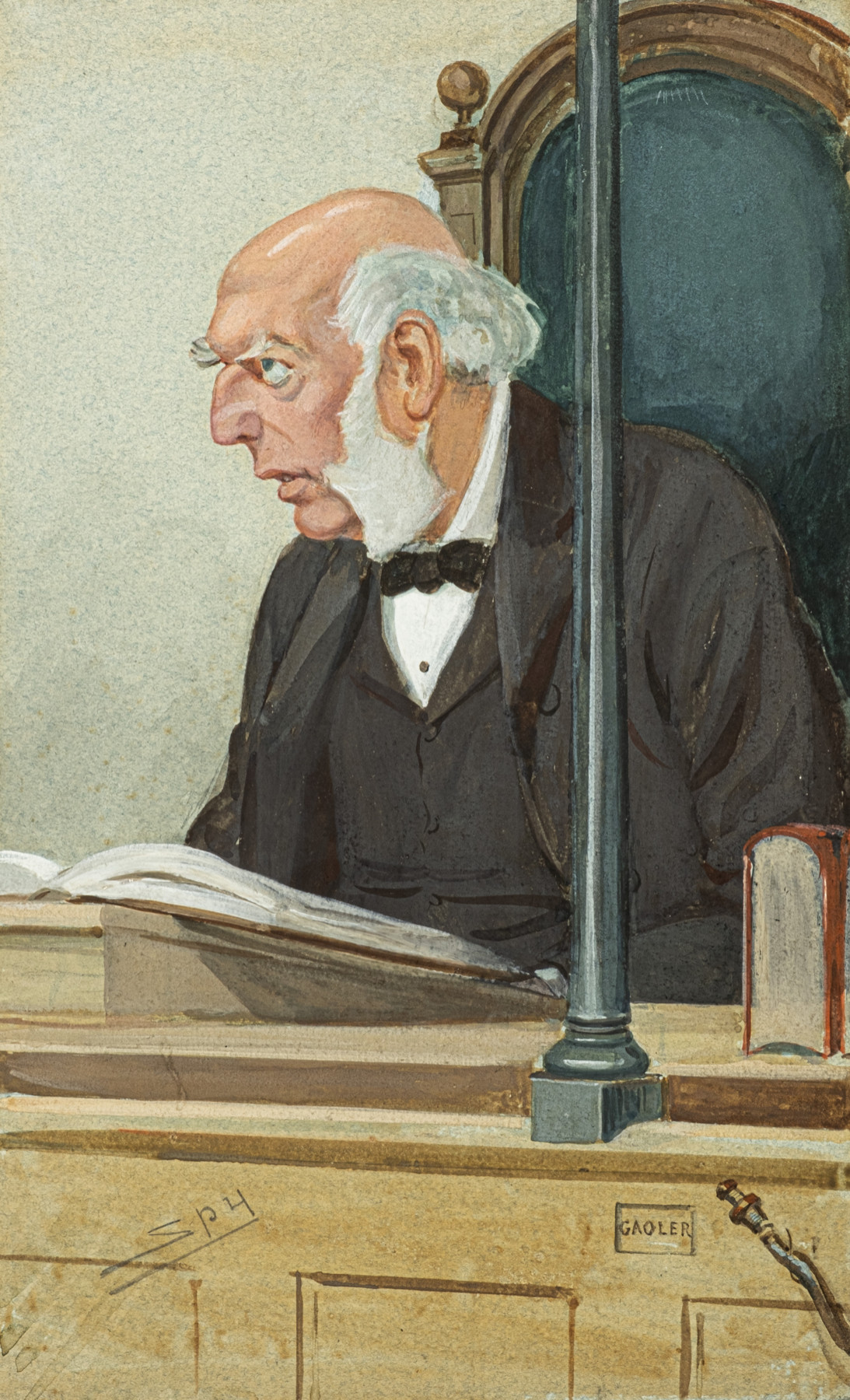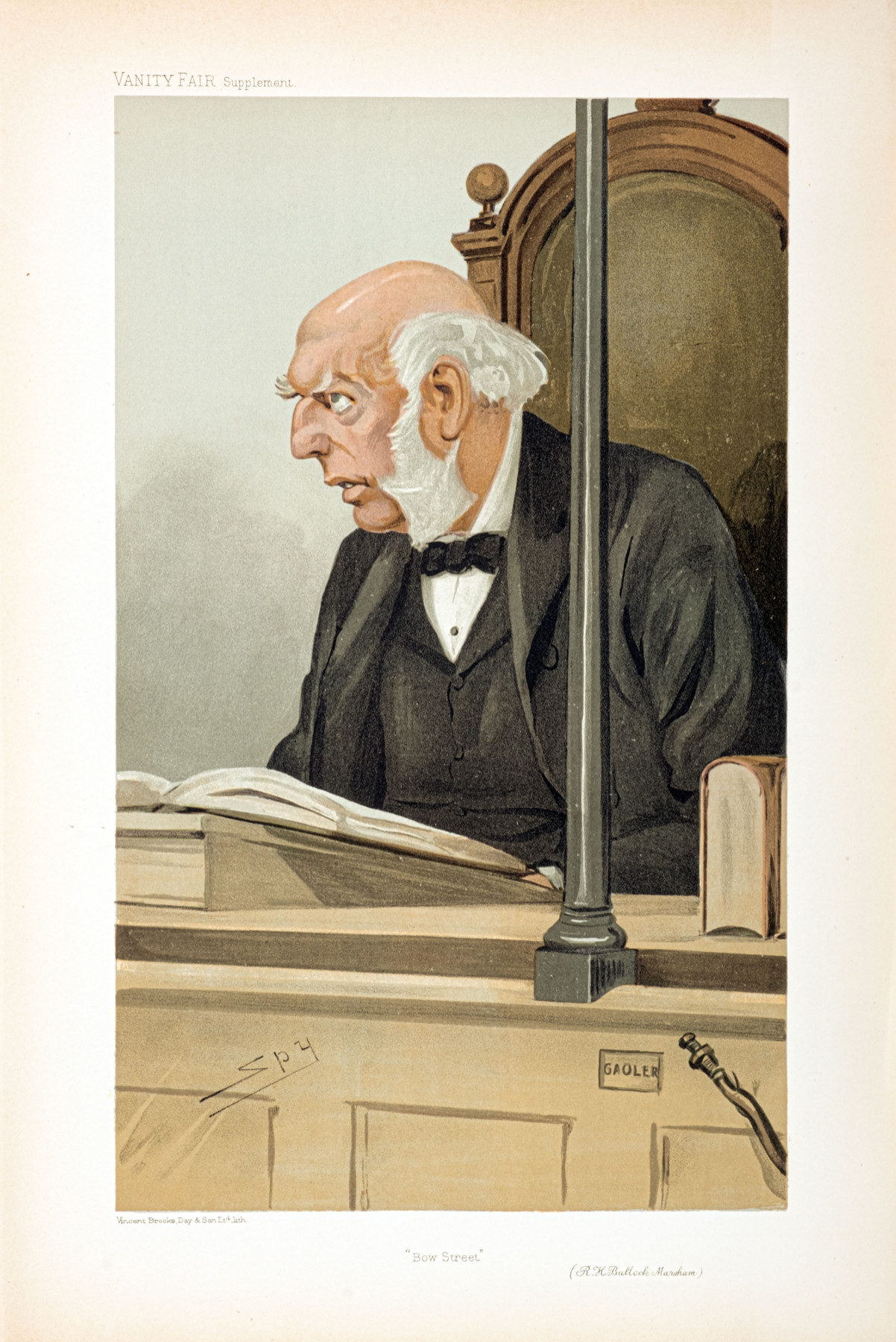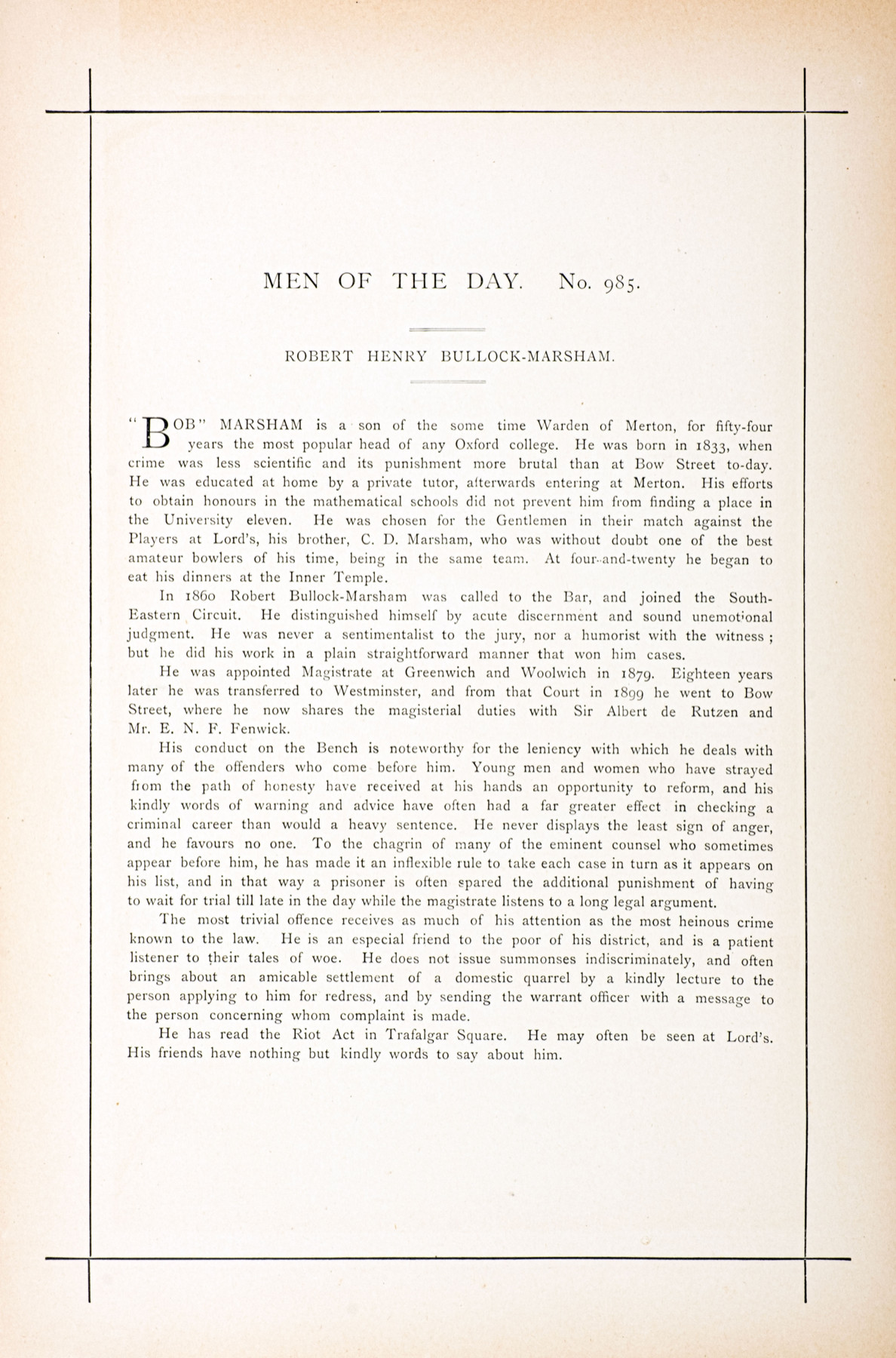


At the time of his caricature in Vanity Fair in 1905, Robert Henry Bullock Marsham (1833-1913) was a magistrate at Bow Street Magistrates Court in London. In his youth, Marsham was a talented cricketer. He was selected to play for the Gentlemen against the Players at Lord’s in 1859 and in 1860, featured for the MCC against Surrey at Lord’s in July 1859 and was selected to play for England against Kent at Canterbury in 1860. His obituary appeared in the Wisden Almanack in 1913.
“Bob Marsham is a son of the some time Warden of Merton, for fifty-four years the most popular head of any Oxford college. He was born in 1833, when crime was less scientific and its punishment more brutal than at Bow Street to-day. He was educated at home by a private tutor, afterwards entering at Merton. His efforts to obtain honours in the mathematical schools did not prevent him from finding a place in the University eleven. He was chosen for the Gentlemen in their match against the Players at Lord's, his brother, C. D. Marsham, who was without doubt one of the best amateur bowlers of his time, being in the same team. At four-and-twenty he began to eat his dinners at the Inner Temple.
In 1860 Robert Bullock-Marsham was called to the Bar, and joined the South Eastern Circuit. He distinguished himself by acute discernment and sound unemotional judgment. He was never a sentimentalist to the jury, nor a humorist with the witness; but he did his work in a plain straightforward manner that won him cases.
He was appointed Magistrate at Greenwich and Woolwich in 1879. Eighteen years later he was transferred to Westminster, and from that Court in 1809 he went to Bow Street, where he now shares the magisterial duties with Sir Albert de Rutzen and Mr. E. N. F. Fenwick.
His conduct on the Bench is noteworthy for the leniency with which he deals with many of the offenders who come before him. Young men and women who have strayed from the path of honesty have received at his hands an opportunity to reform, and his kindly words of warning and advice have often had a far greater effect in checking a criminal career than would a heavy sentence. He never displays the least sign of anger, and he favours no one. To the chagrin of many of the eminent counsel who sometimes appear before him, he has made it an inflexible rule to take each case in turn as it appears on his list, and in that way a prisoner is often spared the additional punishment of having to wait for trial till late in the day while the magistrate listens to a long legal argument.
The most trivial offence receives as much of his attention as the most heinous crime known to the law. He is an especial friend to the poor of his district, and is a patient listener to their tales of woe. He does not issue summonses indiscriminately, and often brings about an amicable settlement of a domestic quarrel by a kindly lecture to the person applying to him for redress, and by sending the warrant officer with a message to the person concerning whom complaint is made.
He has read the Riot Act in Trafalgar Square. He may often be seen at Lord's. His friends have nothing but kindly words to say about him.”